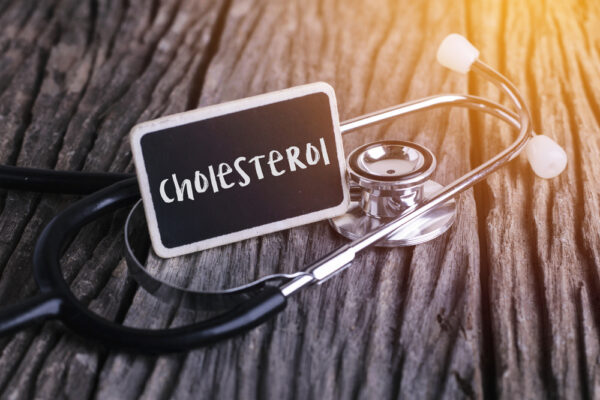6 Things You Need To Know About Cholesterol

Not all cholesterol is ‘bad’
Cholesterol is vital for normal functioning within the body, but there are different types, and it’s important to know how this can potentially affect heart health.
Low-density lipoprotein (LDL) is what’s commonly referred to as ‘bad cholesterol’. LDL cholesterol carries cholesterol to cells around the body but becomes a problem when there’s more cholesterol than the body needs, and it starts building up on artery walls.
High-density lipoprotein (HDL) is commonly known as ‘good cholesterol’. It plays an important role in carrying cholesterol away from cells. Having higher levels of HDL cholesterol can be beneficial for heart health.
How does cholesterol cause heart disease?
The build-up of cholesterol in the arteries can affect the heart in a range of ways.
A condition called atherosclerosis can develop, whereby plaque – made up of cholesterol, fat, calcium and other substances – builds up inside the arteries and hardens over time, effectively narrowing them. This restricts blood flow and the supply of oxygen to your heart, damaging it over time.
It can also increase the risk of blood clots developing within the arteries. This can further reduce blood flow and poses the risk of a clot detaching and moving to another part of the body – or blocking an artery entirely, resulting in a heart attack. Our heart attack information videos as well as our heart failure page explain more.
Your diet and lifestyle can play an important role
We know that lifestyle factors can play a big part in high cholesterol. Smoking is a risk factor; a chemical in cigarettes, called acrolein, stops HDL cholesterol from doing its job properly. Being physically active is beneficial for avoiding high cholesterol, and diet can be important in a number of ways: An unhealthy diet with too much saturated fat (found in things like fatty meats, cheese, butter, cakes and biscuits) can contribute to higher levels of ‘bad cholesterol’, while ‘healthy’ foods like olive oil, oily fish like salmon, beans, fruit and wholegrains can help boost ‘good cholesterol’. Being overweight or obese is also associated with higher rates of high cholesterol.
Genes can also affect cholesterol
Sometimes, high cholesterol can be caused by an inherited condition called familial hypercholesterolaemia, due to a mutated gene that can be passed from generation to generation. For people with familial hypercholesterolaemia, LDL cholesterol levels are higher from birth. This aside, if your parents and grandparents had high cholesterol and a history of heart disease, you might be more likely to develop it too.
High cholesterol doesn’t always cause symptoms
Similar to high blood pressure, it’s possible to have high cholesterol and not know about it because it causes no obvious symptoms – often these things are only detected through routine tests. This is why it’s important to be aware of the risk factors and to attend regular routine health checks. If you’re experiencing any symptoms that could be linked to heart problems – such as breathlessness, chest tightness and fatigue – get them checked out. A blood test will be able to determine if you have high cholesterol.
High cholesterol can be managed
Lifestyle measures – such as stopping smoking, losing excess weight if necessary, exercise and a healthy, balanced diet – are important, but some people with high cholesterol may require medication to help reduce it too, such as statins.
Leading London cardiologist Dr Syed Ahsan helps patients with a wide range of heart conditions. If you have any concerns or questions about your heart health or high cholesterol, book a consultation.
